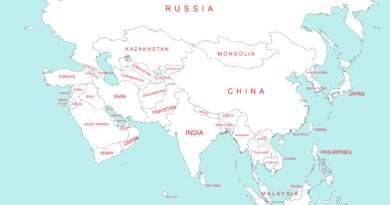Maharishi Dayanand Saraswati
Context:
Maharishi Dayanand Saraswati Jayanti is celebrated every year to mark the birth anniversary of the Maharishi Dayanand Saraswati.
Contents
About Maharishi Dayanand Saraswati:
- Maharshi Dayanand Saraswati was an Indian philosopher, social leader and founder of the Arya Samaj, a reform movement of the Vedic dharma.
- Swami Dayanand Saraswati was born as Mul Shankar Tiwari, on 12th February 1824 in Tankara, Gujarat in a Brahmin family. His parents, Lalji Tiwari and Yashodhabai were orthodox Brahmin.
- He was born into a well-to-do family to a tax collector named Karshanji Lalji Kapadia and his wife Yashodabai.
- He learnt Sanskrit and the Vedas in his childhood.
- He started pondering over the meaning of life after his sister and uncle died. Engaged to be married in his teens, Mul Shankar decided he wanted to lead an ascetic life and ran away from home.
- He was a sanyasi (ascetic) from boyhood and a scholar.
- He spent 25 years as a wandering ascetic and travelled to the Himalayas and other religious places in northern India. He was seeking the truth about life and gave up all material goods in this spiritual pursuit.
- He also started practising Yoga during this time. His teacher in all things spiritual was Virajanand Dandeesha.
- Dayananda understood that Hinduism had strayed away from its roots. He promised his Guru that he would strive hard to reinstate the position of the Vedas to its rightful honoured place in the Hindu religion and way of life.
- He preached against the giving of donations to priests. He also challenged established scholars and won debates against them through the strength of the Vedas. He was staunchly against rituals and superstitions.
- He extolled spiritualism and nationalism and appealed to the people to fight for Swarajya.
- He also exhorted the importance of cows for the prosperity of the nation and encouraged the adoption of Hindi for national integration.
- He stressed on the importance of education of all children and preached respect and equal rights for women.
- He founded the Arya Samaj on April 7, 1875. Through this reform movement, he stressed on One God and rejected idol worship. He also advocated against the extolled position of priests in Hinduism.
- He opposed the multiplicity of castes. Furthermore, he thought that caste multiplicity is the main reason behind the conversion of lower castes into Christianity and Islam.
- He also established Vedic schools for the education of girls and boys of all castes. The students of these schools were given free books, clothing, lodging and food, and were taught the Vedas and other ancient scriptures.
- Arya Samaj led a prolonged movement against untouchability and advocated the dilution of caste distinctions.
- Dayanad anglovedic trust and Management society in lahore in 1886 , was an attempt to unite the samaj and its activities.
- He was the first to give the call for Swaraj as “India for Indians” in 1876, a call later taken up by Lokmanya Tilak.
- They also worked for the protection of widows and other social work like providing relief to victims of natural or manmade calamities.
- He wrote many books. His major contribution is the Satyartha Prakash. Other books include the Sanskarvidhi, Rigved Bhashyam, etc.
- Denouncing the idolatry and ritualistic worship, he worked towards reviving Vedic ideologies. Subsequently, the philosopher and President of India, S. Radhakrishnan called him one of the “makers of Modern India”, as did Sri Aurobindo.
- Those who were influenced by and followed Dayananda included Rai Sahib Pooran Chand, Madam Cama, Pandit Lekh Ram, Swami Shraddhanand,Shyamji Krishna Varma, Kishan Singh, Bhagat Singh, Vinayak Damodar Savarkar, Bhai Parmanand, Lala Hardayal, Madan Lal Dhingra, Ram Prasad Bismil, Mahadev Govind Ranade, Ashfaq Ullah Khan, Mahatma Hansraj, Lala Lajpat Rai, and Yogmaya Neupane.
- Dayananda advocated the doctrine of Karma and Reincarnation. He emphasized the Vedic ideals of brahmacharya, including celibacy and devotion to God.
- Among Dayananda’s contributions were his promoting of the equal rights for women, such as the right to education and reading of Indian scriptures, and his commentary on the Vedas from Vedic Sanskrit in Sanskrit as well as in Hindi.
- Dayananda was poisoned during his stay at the palace of the Maharaja of Jodhpur, Jaswant Singh II. He succumbed to the injury suffered at Ajmer, where he was sent for better treatment on 26th October 1883. He was 59.
What is Arya Samaj?
- It aims to reestablish the Vedas, the earliest Hindu scriptures, as revealed truth. He rejected all later accretions to the Vedas as degenerate but, in his own interpretation, included much post-Vedic thought.
- During the 1920s and early 1930s tension grew around a number of issues. Muslims were angered by “music-before-mosque”, by the cow protection movement, and by the efforts of the Arya Samaj to bring back to the Hindu fold (shuddhi) those who had recently converted to Islam.
- The Arya Samaj has always had its largest following in western and northern India.
- The Samaj opposes worship of murtis (images), animal sacrifice, shraddha (rituals on behalf of ancestors), basing caste upon birth rather than upon merit, untouchability, child marriage, pilgrimages, priestly craft, and temple offerings.
- It upholds the infallibility of the Vedas, the doctrines of karma (the accumulated effect of past deeds) and samsara (the process of death and rebirth), the sanctity of the cow, the importance of the samskaras (individual sacraments), the efficacy of Vedic oblations to the fire, and programs of social reform.
- It has worked to further female education and intercaste marriage, has built missions, orphanages, and homes for widows, has established a network of schools and colleges, and has undertaken famine relief and medical work.
Source: Time of India
You can find many articles on Modern India (part of GS I) in our website. Go through these articles share with your friends and post your views in comment section.
Discover more from Simplified UPSC
Subscribe to get the latest posts sent to your email.


